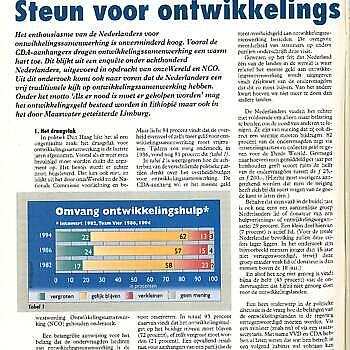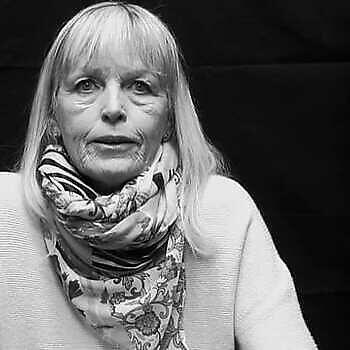Pronk wrote a new policy paper: ‘The World in Conflict’ (‘De Wereld in Geschil’). The tone of the development debate became more somber: poverty appeared to be closely linked to conflict. The approach to poverty reduction became broader and more comprehensive.
Together with the Minister of Foreign Affairs Hans van Mierlo, Pronk ‘decompartmentalized’ the ministry. Diplomats and development workers began working together. They had to exert political pressure or negotiate to resolve conflicts within countries or to make sure human rights abuses would stop. This ‘political’ approach was also the reason why Pronk provided assistance to a total of 120 countries. This bought him ‘a seat at the negotiating table’ and enabled him to participate in decision-making.
Development thinking
The one-sided focus on economic growth and the role of the state became more nuanced. It was more about ‘human development’ and, in the case of conflict countries, ‘human security’. The environment as a prerequisite for development became more important after ‘Rio '92’. But Pronk also paid attention to the economy.
Civil society organizations
At the same time, there was an enormous increase in private development organizations, especially in developing countries themselves. This growth resulted from the realization that society must also be built from the bottom up.
Notes:
- Een wereld van verschil: Nieuwe kaders voor ontwikkelingssamenwerking in de jaren negentig. Den Haag: Ministerie van Buitenlandse Zaken/Ontwikkelingssamenwerking (1990)
- Een wereld in geschil: De grenzen van ontwikkelingssamenwerking verkend, J.P. Pronk (1993): Collectie NICC, n. A02992
Sources:
Extra
- Podcast (driedelig) over en met Pronk van de Correspondent.
- Regeringsstandpunt Tropisch Regenwoud, J.D. Gabor, J.P. Pronk (1990-1991), NICC collection, A02570
- Website van Jan Pronk

